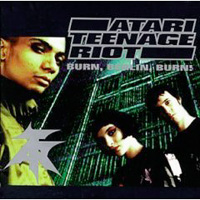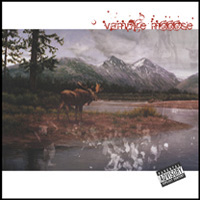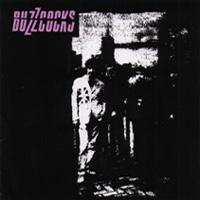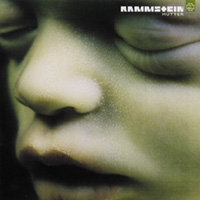 Rammstein
Rammstein
Mutter (Universal)
An interview with guitarist Richard Kruspe
by Martin Popoff
After moving close to three million units worldwide of their second album, the militaristic and still shockingly fresh Sehnsucht from well on nigh four years ago, well-tailored German electro-stompers Rammstein could well have afforded the time off, even though if you ask them, the last bunch of years have been quite busy and pyrotechnic indeed. Now they are back with Mutter (translation: Mother), and the propaganda machine is in full swing.
Tell me the story behind some of the lyrics.
The first song, “Mein Herz Brennt,” or “My Heart Is Burning,” is about angst, anxiety. I think it’s a general topic all throughout your life. When you think about anxiety or angst as such, you also realize that as you grow older, the more anxious you get and the more experiences you have to go through to lose that kind of anxiety. I think it’s very important that you lose that. The song deals with children who have nightmares. They create a monster that comes out at night and lives off their tears. It takes their tears and injects them into his arm and lives off them.
But one of the strengths of Rammstein is that our lyrics are quite ambiguous. We don’t like to explain or interpret them. Because we have six members in the band, we have six different opinions, and I think it’s great that you can create your own story if you listen to the lyrics. We don’t want to tell people what to think, we want them to be inspired to create their own story. But, for example, I can tell you one story, for the song “Spieluhr,” or “The Music Box.” It’s about a child who gets sick and dies. The child is buried and there is a funeral. And then all of the sudden, they hear a song from somewhere. They turn around and they can’t figure out where the music is coming from. Then they realize the music is coming from out of the ground. They realize the child was buried alive. So they disinter the child and everything is all right.
So why not an album title like “Mentally Scarred Little German Kids”? Why Mutter?
Why not? It seems to be a tradition that we have a short, one word title. The first one was Herzeleid, Heartache, then Sehnsucht, Longing, then Mutter, Mother. If you look at the three together, it’s almost a trilogy without us even planning it. When you think of mother, many characteristics, many things come to mind. Many feelings and emotions, love, hatred, pain as well as the feeling that you kind of have to move away from yourself and your origins. Your relationship with your mother plays an important role, and it’s important that you wean yourself off of that in order to make new relationships successful.
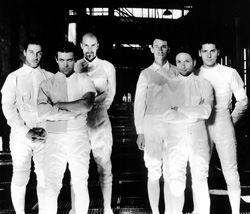 This album is more traditionally guitar-based.
This album is more traditionally guitar-based.
The big difference between the second and the third albums is that the second one had a strong dependency on electronic instruments, computers, samplers, and keyboards. That was at a time when we were just beginning to discover those kinds of media. You can actually hear that in the music. It sounded kind of cold and programmed. With the third album, Mutter, we tried to go back to the conventional instruments and only use electronic means to reinforce the music. And I believe you can hear it. The songs are more mature and there’s less of a dependence on the electronics.
In term’s of Till’s singing, I think that was an issue when we started working with him. He had no musical training, and I feel that over these last three albums he’s really developed and evolved. When I write the songs, I write strong tunes for him to write over. This time you actually hear him sing, whereas before he was sort of talking. He’s developed his own style of singing.
Who are your guitar heroes?
When I started playing, I didn’t have a specific role model. I was interested in bands like AC/DC, Led Zeppelin, but I was more interested in their riffs. I listened to a lot of pop music but it felt too soft. So even as a kid, I wanted to merge these two worlds. For me, the important thing was songwriting. A good song is what we’re after and that can be achieved through simple riffs.
What’s the band’s name mean?
That’s probably one of the oldest questions I get asked. And quite frankly, I can’t even give you an answer, but I’ll try. There’s a place in Germany, but it’s only spelled with one “m.” It was a place where they had an airshow and a plane actually crashed into the crowd and 70 or 80 people died. We wrote a song with that name as kind of a musical monument to what happened there. Another explanation is that Rammstein can be a stone, a stone around a gate, a kind of blocking stone, a milestone, a boundary stone. When I first heard the name, I didn’t like it and didn’t know where it came from, but the name stuck and we can’t get rid of it now.
What are your thoughts on singing in German versus English?
People always ask me if I think using the German language is a stone around our career, and I think right now it’s the other way around. People accept us singing in German. I think our music fits really well to the German language. And I think judging from how well we’ve done, people agree. I wish other bands would do the same, because it would be more colorful. It would add local color to the music world.
(www.rammstein.de)

